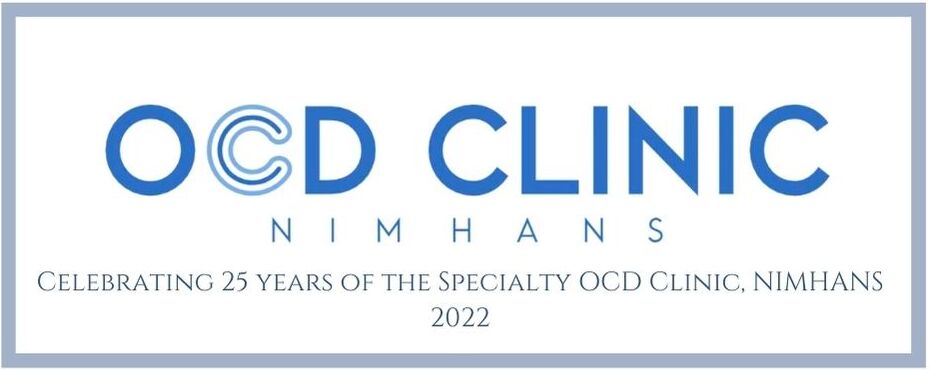Research Projects List
Dissertation Thesis
Identifying Brain Signatures of Obsessive-Compulsive Profiles (NIMH R01 grant- PI – Prof. Helen Blair Simpson)
Indian site Investigators – Prof. Y.C.janardhan Reddy (Site- PI), Dr. Janardhanan C. Narayanaswamy (Co-investigator); Prof. Ganesan Venkatasubramanian (Co-investigator)
Total Period: 5 years
Overall Goals: The goal of this proposal is to identify reproducible brain signatures associated with cognitive and clinical profiles that are common in individuals with OCD. To accomplish this, 250 unmedicated OCD and 250 healthy control subjects (HCs) at five expert research sites spanning five countries (U.S., Brazil, India, Netherlands, and South Africa) will be examined. Using imaging methods that could ultimately be adapted for clinical use, we will examine multiple brain circuits thought to underlie OCD behaviors, focusing on morphometry (using T1-weighted MRI), structural connectivity (using Diffusion Tensor Imaging [DTI]), and functional connectivity (using resting-state fMRI [rs-fMRI]).
Neural and Immunological Predictors of SSRI Response in OCD (PI- Dr.Janardhanan C. Narayanaswamy)
Funding: Department of Science and Technology (DST), India (INSPIRE faculty award)
Overall Goals: To study the structural and functional brain abnormalities and cytokine (immune) profile in drug free adult subjects with OCD at baseline and 12 weeks after SSRI treatment. We would then like to examine the relationship between these abnormalities and SSRI response.
Neurobiological Correlates & Translational Implications of Neuromodulation in OCD: A High Definition Transcranial Direct Current Stimulation (HD-tDCS) Study (PI- Dr.Janardhanan C. Narayanaswamy)
Funding: Wellcome trust- Department of Biotechnology India Alliance Intermediate fellowship award.
Total Period: 5 years
Overall Goals: Error monitoring and response inhibition (EM/RI), a critical cognitive function, is deficient in OCD and this might form the basis of symptoms. The enhancement of EM/RI could potentially result in clinical improvement. Converging evidence suggests the role of cortico-striato-thalamo-cortical (CSTC) circuits in the neurobiology of OCD including the cognitive deficits. This project proposal aims to examine the neurobiological effects of high-definition transcranial direct current stimulation (HD-tDCS) on the pre-supplementary motor area(Pre-SMA),a pivotal cortical region which regulates the striatal functions, using a targeted circuitry specific approach to enhance EM/RI, in patients with OCD having persistent symptoms despite being on adequate treatment with selective serotonin reuptake inhibitors(SSRI). This would be examined through comprehensive assessment of neurohemodynamic changes (functional MRI) and electrophysiological changes(error related negativity) pertaining to EM/RI coupled with the assessment of in-vivo neurochemical alterations (Magnetic resonance spectroscopy for NAA and glutamate) prospectively in pre-SMA before and after HD-tDCS sessions using a randomised sham-controlled design. In addition, the translational implications of modulation of cognitive function would be examined by assessing the clinical improvement with HD-TDCS.
A Family Based Association Study of Glutamatergic Genes with OCD (PI- Prof. Y.C.Janardhan Reddy)
Funding: Indian Council of Medical Research (ICMR)
Total Period: 3 years
Overall Goals: This study aims to recruit 300 OCD patients and 600 unaffected first degree relatives and look for family-based association of glutamatergic genes.
Cognitive Behavior Therapy (CBT) in Partial Responders with OCD: A Randomized Controlled Trial (PI- Prof. Paulomi Sudhir)
Funding: Indian Council of Medical Research (ICMR)
Total Period: 3 years
Overall Goals: The study examines the relative efficacy of cognitive-behavior therapy (CBT) and risperidone in partial responders to SSRIs
Accelerator Program for Discovery in Brain Disorders using Stem cells (ADBS) (NIMHANS PI – Prof.Sanjeev Jain)
The ADBS proposal is a prospective study, which involves brain imaging of at least 1500 participants (300 patients with major psychiatric illness, 900 unaffected relatives and 300 controls), over repeated occasions. Contemporary imaging methods are being used successfully to study development, structure and connectivity patterns in the human brain. This will be essential to complement the leads being gained from the biological experiments, for further insights. The shared genetic risk, and overlapping but separate environmental exposures, will be assessed for their possible influence on imaging characteristics, in subjects included in this study. This aspect is a very critical aspect, and the central element in this proposal to investigate the differential brain developmental trajectories which underlie psychiatric diseases and correlation with genetic and cellular variations. OCD is one of the psychiatric disorders being evaluated for this study.
| Name | Designation |
|---|---|
| Karthik S | Senior Resident (NIMH); PhD Psychiatry |
| Farooq Ali | PhD Clinical Neurosciences |
| Spurthi Thatikonda | PhD Clinical Neurosciences |
| Manpreet Kaur | Clinical Psychologist |
| Nithyananda S | Psychiatric Social Worker |
